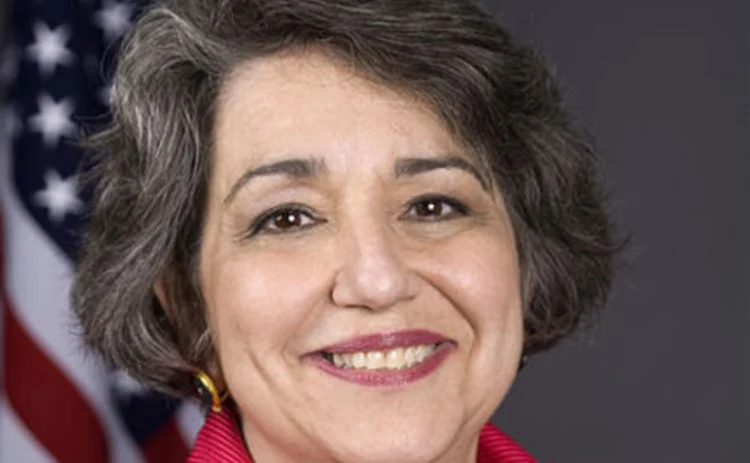Elisse Walter Named SEC Chair, Likely to Seek Greater Coordination Abroad

Elisse Walter will become chair of the Securities and Exchange Commission (SEC), following the departure of Mary Schapiro December 14. Even if it is merely a temporary stay, Walter's installation in the role, which in its rapidity has come as a surprise to some, and does not require US Senate approval because she is already on the Commission, will see more details of her rule-making philosophy emerge in coming days.
Walter's recent posting at the Harvard Law School Forum for Corporate Governance and Financial Regulation gives some indication of her view of financial technology, and global regulators' required affinity for it.
The posting, International Coordination Among Regulators, penned last month on the same day the SEC's technology roundtable, sets out to provide Walter's thoughts on time recently spent as the Commission's representative to the Financial Stability Board (FSB) and the International Organization of Securities Commissions (Iosco).
Setting out to draw a subtle distinction between cross-border “cooperation” and “coordination,” Walter suggests that the answers to regulators' most difficult questions are likely to be found in "bilateral and smaller multilateral dialogues among regulators in key jurisdictions," citing practical limitations of the larger forums mentioned above.
She notes that technology-focused initiatives, such as the unified legal entity identifier (LEI) initiative, are already proving how a collaborative model, driven not only by the Group of Twenty (G20) nations, but also by active engagement with private firms, can be fruitful.
"[The eventual LEI implementation] should lower the cost of data aggregation and reporting. It should also allows private firms to improve their own risk management practices, and to provide better data to financial regulators as we monitor the markets and the financial system," she writes.
That model is expected to grow further, according to Walter. "I expect that the role of technology in the market will lead to a greater level of coordination with non-US regulators. As markets rely more and more on automated systems and become increasingly interconnected, we will need to work together to maintain a reliable and robust market infrastructure, one that is capable of detecting and mitigating risks that technology and automation may bring," she says, seeing similar value in stronger international initiative around systems risk.
As a new cohort of post-crisis officials take the reins, including Mark Carney, also chosen today as the first Canadian to lead the Bank of England—and, soon enough, oversee many of the UK Financial Services Authority’s (FSA’s) responsibilities as well—it will prove interesting to observe how, if at all, technology and global regulatory coordination effectively combine.
Only users who have a paid subscription or are part of a corporate subscription are able to print or copy content.
To access these options, along with all other subscription benefits, please contact info@waterstechnology.com or view our subscription options here: https://subscriptions.waterstechnology.com/subscribe
You are currently unable to print this content. Please contact info@waterstechnology.com to find out more.
You are currently unable to copy this content. Please contact info@waterstechnology.com to find out more.
Copyright Infopro Digital Limited. All rights reserved.
As outlined in our terms and conditions, https://www.infopro-digital.com/terms-and-conditions/subscriptions/ (point 2.4), printing is limited to a single copy.
If you would like to purchase additional rights please email info@waterstechnology.com
Copyright Infopro Digital Limited. All rights reserved.
You may share this content using our article tools. As outlined in our terms and conditions, https://www.infopro-digital.com/terms-and-conditions/subscriptions/ (clause 2.4), an Authorised User may only make one copy of the materials for their own personal use. You must also comply with the restrictions in clause 2.5.
If you would like to purchase additional rights please email info@waterstechnology.com
More on Emerging Technologies
DTCC tests 24x5 trading, State Street launches digital asset platform, and more
The Waters Cooler: STG carves out S&P Global’s data businesses, Arcesium expands in Hong Kong, and Rimes partners with three vendors in this week’s news roundup.
Banks split over AI risk management
Model teams hold the reins, but some argue AI is an enterprise risk.
Waters Wavelength Ep. 344: Hot topics for 2026
Tony and Shen preview some of the topics they think will be big this year.
Fintechs grapple with how to enter Middle East markets
Intense relationship building, lack of data standards, and murky but improving market structure all await tech firms hoping to capitalize on the region’s growth.
SimCorp–MSCI expand partnership, quantum exploration, Dora concerns, and more
The Waters Cooler: Droit launches GenAI regtech tool, bids for EU OTC derivatives tape open, and more in this week’s news roundup.
The quantum leap: How investment firms are innovating with quantum tech
While banks and asset managers are already experimenting with quantum computing to optimize operations, they should also be proactive in adopting quantum-safe strategies.
‘The end of the beginning’: Brown Brothers Harriman re-invents itself
Voice of the CDO: Firms who want to use AI successfully better start with their metadata, says BBH’s Mike McGovern and Kevin Welch.
2026 will be the year agent armies awaken
Waters Wrap: Several AI experts have recently said that the next 12 months will see significant progress for agentic AI. Are capital markets firms ready for this shift from generative AI to agents?







